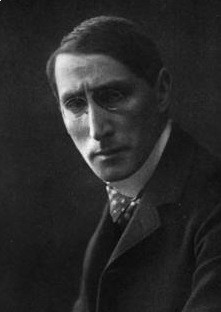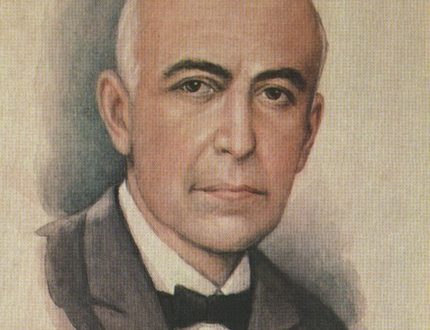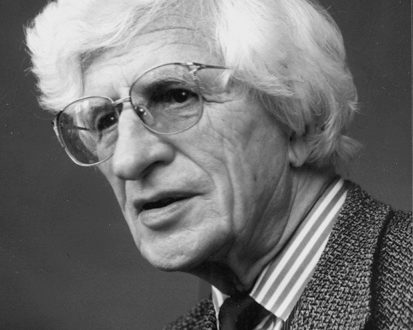
Oscar Fried |
Oskar Fried
At the very beginning of the XNUMXth century, the young composer Oskar Fried was invited to Vienna to conduct a performance of his “Bacchic Song” in a symphony concert. By that time, he had never had to rise behind the conductor’s stand, but he agreed. In Vienna, before rehearsals, Fried met the famous Gustav Mahler. After talking with Fried for several minutes, he suddenly said that he would make a good conductor. And to the surprised question of the young musician, whom Mahler had never seen on the stage, he added: “I feel my people right away.”
The great musician was not mistaken. The day of the Vienna debut marked the beginning of a brilliant conductor’s career. Oscar Fried came to this day, already having considerable life and musical experience behind him. As a child, his father sent him to a private craft school for musicians. A dozen and a half boys were trained under the guidance of the owner to play various instruments, and along the way they did all the menial work around the house, played all night long at parties, in pubs. In the end, the young man ran away from the owner and wandered for a long time, playing in small ensembles, until in 1889 he found a job as a horn player in the Frankfurt am Main Symphony Orchestra. Here he met the famous composer E. Humperdinck, and he, having noticed his outstanding talent, willingly gave him lessons. Then travel again – Dusseldorf, Munich, Tyrol, Paris, cities of Italy; Fried was starving, moonlighting as he had to, but stubbornly wrote music.
Since 1898, he settled in Berlin, and soon fate favored him: Karl Muck performed his “Bacchic Song” in one of the concerts, which made Frida’s name popular. His compositions are included in the repertoire of orchestras, and after he himself began to conduct, the musician’s fame grows by leaps and bounds. Already in the first decade of the 1901th century, he performed in many of the largest centers of the world, including for the first time on tour in Moscow, St. Petersburg, Kyiv; in 1907, Fried became chief conductor of the Singing Union in Berlin, where Liszt’s choral works sounded magnificent under his direction, and then he was chief conductor of the New Symphony Concertos and the Blütner Orchestra. In XNUMX, the first monograph about O. Fried was published in Germany, written by the famous musicologist P. Becker.
In those years, the artistic image of Fried was formed. The monumentality and depth of his performing concepts were combined with inspiration and passion for interpretation. The heroic beginning was especially close to him; the powerful humanistic pathos of the great works of classical symphonism – from Mozart to Mahler – was transmitted to them with unsurpassed power. Along with this, Fried was an ardent and tireless propagandist of the new: many premieres of works by Busoni, Schoenberg, Stravinsky, Sibelius, F. Dilius are associated with his name; he was the first to introduce listeners in many countries to a number of works by Mahler, R. Strauss, Scriabin, Debussy, Ravel.
Fried often visited Russia in the pre-revolutionary years, and in 1922 he, the first of the world-famous Western musicians, decided to come on tour to the young Soviet country, wounded by the civil war. A courageous and noble step was taken by an artist who has always been close to advanced convictions. On that visit, Fried was received by V. I. Lenin, who spoke with him for a long time “about the tasks of the workers’ government in the field of music.” The introductory speech to Frid’s concerts was delivered by the People’s Commissar of Education A. V. Lunacharsky, who called Frid “an artist dear to us” and assessed his arrival as “a manifestation of the first bright resumption of cooperation between peoples in the field of art.” Indeed, Fried’s example was soon followed by other great masters.
In subsequent years, touring all over the world – from Buenos Aires to Jerusalem, from Stockholm to New York – Oscar Fried came to the USSR almost every year, where he enjoyed great popularity. And when in 1933, after the Nazis came to power, he was forced to leave Germany, he chose the Soviet Union. The last years of his life, Fried was the chief conductor of the All-Union Radio Symphony Orchestra, actively toured throughout the Soviet country, which became his second home.
At the very beginning of the war, among the reports of the first terrible days of the war, an obituary appeared in the newspaper Sovetskoe Iskusstvo, announcing that “after a long serious illness, the world-famous conductor Oscar Fried died in Moscow.” Until the end of his life, he did not leave creative and social activities. In the article “The Horrors of Fascism”, written by the artist shortly before his death, there were the following lines: “Together with all progressive mankind, I am deeply convinced that fascism will be destroyed in this decisive battle.”
L. Grigoriev, J. Platek





